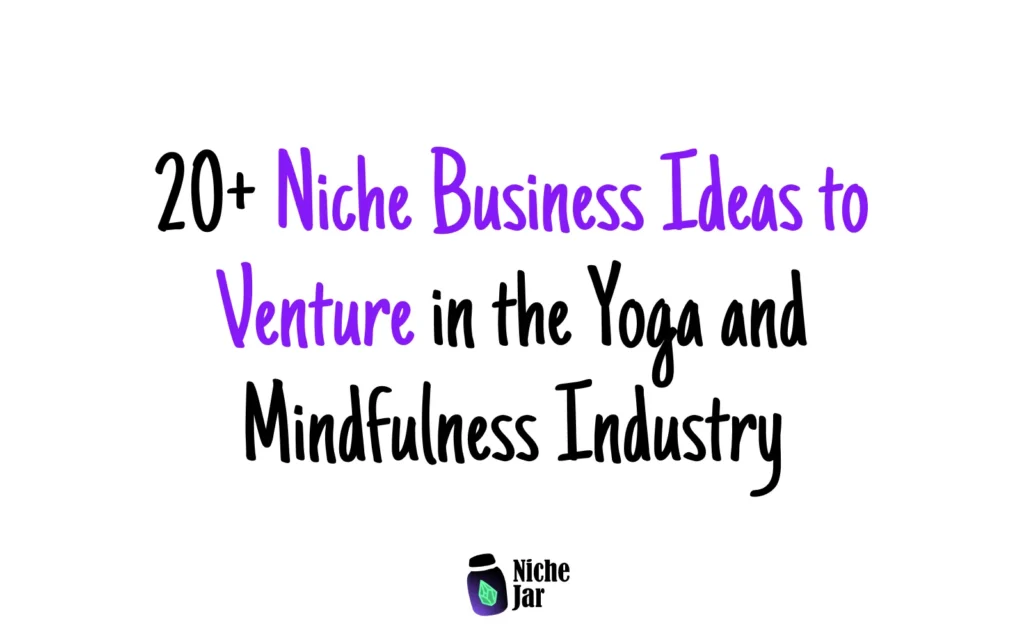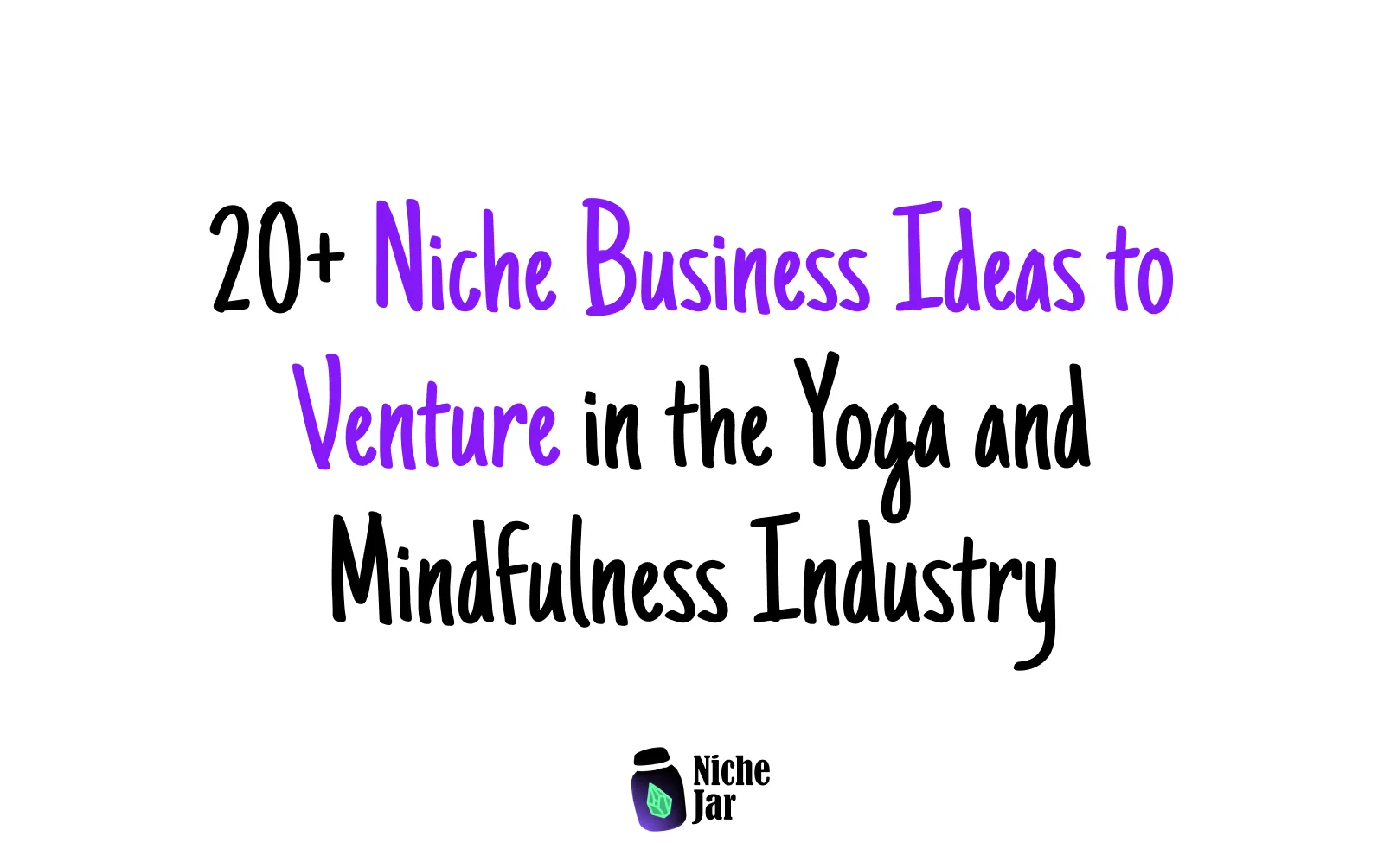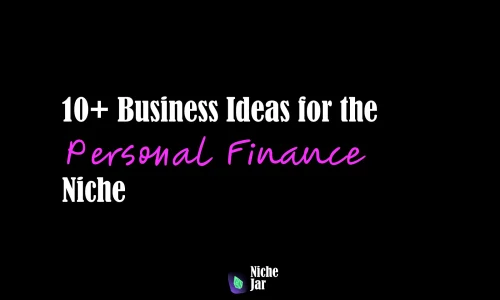- Senia
- 0 Comments
- 895 Views
Have you ever wondered how people turn their passion for yoga and mindfulness into a sustainable income? From what I’ve seen, the yoga and wellness industry offers countless paths for small, niche businesses that don’t always require huge investments. In this post, we’ll explore 20+ niche business ideas in the yoga and mindfulness industry that can help you create meaningful work while building a steady income.
The yoga and mindfulness industry is growing at a remarkable pace. Millions of people around the world are searching for ways to manage stress, live healthier lives, and find inner peace. This demand has opened doors for everyday entrepreneurs—people like you and me—who are curious about how to turn passion for wellness into profitable businesses.
From what I’ve seen, yoga and mindfulness businesses don’t always require large investments or complex setups. Many of them can be started from home, online, or with very little equipment. Whether you’re a certified yoga teacher or simply someone passionate about mindful living, there are niche opportunities waiting to be discovered.
Why does this matter for everyday people? Because these businesses allow us to blend purpose with profit. It’s not just about making money—it’s about serving a growing need while staying true to values of wellness and balance. From mindfulness coaching to yoga retreats, these opportunities can be adapted to your skills, budget, and lifestyle.
In this post, I’ll walk you through 20+ profitable yoga and mindfulness business ideas, sharing practical tips on how to start, what challenges to expect, and how to overcome them. You’ll also find estimated startup costs, monetization methods, and real-world examples to make the path clearer.
Each idea will include insights, tips, costs, and challenges—because I believe knowing both the opportunities and the obstacles helps us build more sustainable businesses. Let’s dive in.

1. Online Yoga Classes and Memberships
Running online yoga classes is one of the most accessible ways to start. Platforms like Zoom, YouTube, or specialized fitness apps make it easy.
Why it works: Online classes offer convenience, especially for people balancing work and family. The global online fitness market is expected to grow significantly in the next few years.
Steps to start:
- Choose a niche (beginner-friendly, prenatal yoga, stress-relief sessions).
- Invest in a good camera, microphone, and lighting.
- Use platforms like Zoom or create a membership site with tools like Teachable or Kajabi.
- Offer free trial classes to build trust.
Startup costs: $200–$1,000 (camera, lighting, website).
Monetization: Subscription memberships, class packs, affiliate links to yoga gear.
Challenge: Competition is high.
Solution: Focus on a specific audience—e.g., “Yoga for Busy Moms” or “Yoga for Tech Workers.”

2. Mindfulness Coaching
This involves guiding clients through stress management, meditation, and mindful living practices.
Why it works: More companies and individuals are recognizing the benefits of mindfulness for mental health.
Steps to start:
- Get certified in mindfulness or coaching (optional but helpful).
- Define your niche (corporate, parents, students).
- Offer 1-on-1 coaching, group sessions, or digital courses.
- Market through LinkedIn, Instagram, or a personal website.
Startup costs: $500–$2,000 (training, website, tools like Zoom or Calendly).
Monetization: Coaching packages, online workshops, e-books.
Challenge: Building credibility.
Solution: Share testimonials, case studies, or free workshops to showcase results.
3. Yoga Retreats and Wellness Travel
Organizing yoga retreats in serene locations can be both fulfilling and profitable.
Why it works: People are seeking immersive experiences to reset from busy lives.
Steps to start:
- Partner with retreat centers or hotels.
- Build a theme (detox, meditation, beginner yoga).
- Market through social media and wellness communities.
- Start small with weekend retreats before scaling.
Startup costs: $5,000–$20,000 (venue, logistics, marketing).
Monetization: Retreat packages ($500–$2,000 per person).
Challenge: High upfront cost.
Solution: Pre-sell spots to cover expenses.

4. Children’s Yoga Programs
Why it works: Parents are seeking healthy, screen-free activities for kids that promote focus and calmness. Schools and after-school programs often look for yoga instructors.
Steps to start:
- Train in children’s yoga (many online certifications available).
- Offer classes in schools, community centers, or online.
- Use playful themes and storytelling to keep kids engaged.
Startup costs: $300–$1,500 (certification, mats, props).
Monetization: Class fees, school contracts, recorded online sessions.
Challenge: Keeping children engaged.
Solution: Use games, music, and props.
5. Corporate Yoga and Mindfulness Workshops
Why it works: Companies increasingly invest in employee wellness to reduce stress and improve productivity.
Steps to start:
- Develop workshop packages (stress reduction, desk yoga, breathing exercises).
- Network on LinkedIn and connect with HR managers.
- Offer trial workshops to land longer-term contracts.
Startup costs: $500–$2,000 (certification, marketing materials).
Monetization: Per-session fees or ongoing contracts.
Challenge: Standing out among wellness providers.
Solution: Highlight ROI—improved focus, reduced absenteeism.
6. Niche Yoga Styles (Aerial, Hot Yoga, SUP Yoga)
Why it works: Unique styles attract curious learners and create a distinct brand.
Steps to start:
- Train in a specific niche.
- Invest in equipment (hammocks for aerial, heaters for hot yoga).
- Promote the uniqueness through Instagram and YouTube.
Startup costs: $2,000–$10,000 (depends on niche).
Monetization: Premium class pricing, workshops, retreats.
Challenge: Higher equipment costs.
Solution: Start small with pop-up classes.

7. Yoga Apparel and Accessories
Why it works: Yoga enthusiasts are always seeking comfortable, stylish, and sustainable wear.
Steps to start:
- Source eco-friendly fabrics or partner with suppliers.
- Use print-on-demand for designs (low upfront costs).
- Sell through Etsy, Shopify, or Instagram.
Startup costs: $500–$5,000.
Monetization: Direct sales, affiliate links, subscription boxes.
Challenge: Competitive market.
Solution: Focus on sustainability or inclusivity (e.g., plus-size yoga wear).
8. Meditation Apps and Digital Products
Why it works: Meditation apps are booming, and smaller niches (like student-focused or workplace mindfulness) have room to grow.
Steps to start:
- Hire a developer or use no-code tools.
- Record guided meditations.
- Monetize with subscriptions or in-app purchases.
Startup costs: $1,000–$15,000 (depending on complexity).
Monetization: Subscriptions, ads, affiliate offers.
Challenge: Competing with big players.
Solution: Serve a narrow audience (e.g., teens, teachers).
9. Yoga and Wellness Blogging
Why it works: Blogging builds authority and attracts affiliate and ad revenue.
Steps to start:
- Choose a niche (prenatal yoga, mindfulness for entrepreneurs).
- Write consistent, SEO-optimized posts.
- Monetize with affiliate links, ads, and digital products.
Startup costs: $200–$1,000 (domain, hosting, tools).
Monetization: Ads, affiliate links, sponsored posts.
Challenge: Slow traffic growth.
Solution: Combine blogging with social media promotion.

10. Mindfulness Journals and Printables
Why it works: Printable planners, gratitude journals, and mindfulness trackers are in high demand.
Steps to start:
- Design templates on Canva or Adobe.
- Sell on Etsy or your own site.
- Offer bundles for higher value.
Startup costs: $50–$500.
Monetization: Etsy sales, memberships, bundles.
Challenge: Market saturation.
Solution: Add unique features like affirmations or habit trackers.
11. Yoga Studio (Boutique or Shared Space)
Why it works: A local studio creates a community hub for wellness.
Steps to start:
- Rent a small space or sublease.
- Offer group classes and workshops.
- Partner with other wellness providers.
Startup costs: $10,000–$50,000 (rent, equipment, insurance).
Monetization: Class fees, memberships, merchandise.
Challenge: High overhead costs.
Solution: Start with pop-up classes to build clientele.
12. Online Yoga Teacher Training
Why it works: Many aspiring teachers prefer flexible, online options.
Steps to start:
- Partner with Yoga Alliance for accreditation.
- Record comprehensive modules.
- Market via yoga blogs, YouTube, and affiliates.
Startup costs: $2,000–$8,000 (production, platform).
Monetization: Course sales ($500–$2,000 per student).
Challenge: Building authority.
Solution: Partner with established instructors.

13. Retreat Planning Services
Why it works: Many yoga teachers want to host retreats but lack organizational skills.
Steps to start:
- Specialize in wellness-focused event planning.
- Build vendor relationships (venues, caterers).
- Offer packages for teachers.
Startup costs: $1,000–$5,000.
Monetization: Planning fees, commission from venues.
Challenge: Managing logistics.
Solution: Start with local weekend retreats.
14. Yoga for Seniors or Special Populations
Why it works: Seniors, pregnant women, or people with disabilities need tailored yoga.
Steps to start:
- Get specialized certifications.
- Partner with retirement homes or hospitals.
- Offer gentle, adaptive classes.
Startup costs: $500–$2,000.
Monetization: Class fees, health center contracts.
Challenge: Extra care required.
Solution: Focus on safety and medical approvals.
15. Yoga and Wellness Podcasts
Why it works: Podcasts reach busy people seeking inspiration on the go.
Steps to start:
- Plan niche topics (mindful parenting, yoga entrepreneurship).
- Record with affordable equipment.
- Publish weekly episodes.
Startup costs: $200–$800.
Monetization: Sponsorships, affiliate links, premium episodes.
Challenge: Growing listenership.
Solution: Collaborate with other podcasters and yoga teachers.
16. Mindful Lifestyle Products (Candles, Oils)
Why it works: People love pairing yoga and meditation with calming products.
Steps to start:
- Learn candle or essential oil making.
- Brand around eco-friendly and natural living.
- Sell on Etsy or subscription boxes.
Startup costs: $500–$3,000.
Monetization: Direct sales, wholesale, gift bundles.
Challenge: Differentiation.
Solution: Focus on natural, ethical sourcing.
17. Yoga Equipment Rentals
Why it works: Travelers and casual practitioners may not want to buy equipment.
Steps to start:
- Offer mats, blocks, straps for rental.
- Partner with studios, retreats, or Airbnb hosts.
- Create an easy online booking system.
Startup costs: $500–$2,500.
Monetization: Rental fees, delivery charges.
Challenge: Hygiene concerns.
Solution: Offer premium cleaning and sanitizing.

18. Local Yoga Events and Festivals
Why it works: Events attract large groups and foster community.
Steps to start:
- Partner with local parks or community centers.
- Invite multiple teachers and vendors.
- Charge entry fees or vendor booth rentals.
Startup costs: $2,000–$10,000.
Monetization: Ticket sales, sponsorships, vendor fees.
Challenge: Event logistics.
Solution: Start small with local park yoga.
19. Affiliate Marketing for Yoga Products
Why it works: Affiliate marketing allows you to earn without holding inventory.
Steps to start:
- Create a blog, YouTube channel, or social media presence.
- Join affiliate programs (Amazon, Liforme, Alo Yoga).
- Share honest reviews and tutorials.
Startup costs: $100–$500.
Monetization: Affiliate commissions.
Challenge: Building trust.
Solution: Use products personally and share authentic reviews.
20. YouTube Yoga Channel
Why it works: Free yoga tutorials on YouTube can reach millions.
Steps to start:
- Record simple, consistent routines.
- Use SEO-friendly video titles and thumbnails.
- Build playlists for beginners, stress relief, etc.
Startup costs: $300–$1,000.
Monetization: Ads, sponsorships, memberships.
Challenge: Consistency.
Solution: Batch film content weekly.
21. Yoga and Mindfulness Courses on Platforms
Why it works: Sites like Udemy and Skillshare give instant access to learners.
Steps to start:
- Plan a structured course (e.g., “10 Days to Stress-Free Living”).
- Record modules with good audio/video.
- Upload and market.
Startup costs: $200–$1,000.
Monetization: Course sales, royalties.
Challenge: Standing out on crowded platforms.
Solution: Offer unique angles and high-quality visuals.
22. Subscription Boxes (Wellness-Focused)
Why it works: Subscription boxes are trending, and yoga-themed items appeal to enthusiasts.
Steps to start:
- Curate products like teas, journals, oils, and small props.
- Partner with small brands for wholesale deals.
- Use Cratejoy or Shopify for management.
Startup costs: $1,000–$5,000.
Monetization: Subscription fees ($30–$60/month).
Challenge: Logistics and fulfillment.
Solution: Start with quarterly boxes before monthly.
Exploring yoga and mindfulness business ideas shows just how many opportunities there are for everyday people to create meaningful work. From online classes to retreat planning, there’s no single path to success—just many small, steady steps you can take.
Remember, every journey begins with testing ideas, learning from mistakes, and adjusting along the way. If you feel drawn to this industry, consider starting small, perhaps with one online class or a few coaching clients, and grow gradually.
I believe the most rewarding part is not just the income, but the impact—helping others live with more peace and balance. If you’d like to explore more niches, Nichejar.com has plenty of guides to spark ideas. I’d love to hear your thoughts—share your favorite idea in the comments or with a friend who might be interested.
TLDR
In short: Here are some of the top yoga and mindfulness business ideas to consider:
- Online yoga classes and memberships (low-cost, scalable).
- Mindfulness coaching (growing demand for stress relief).
- Yoga retreats (higher investment, but strong potential).
- Children’s yoga programs (niche and growing).
- Corporate yoga workshops (steady income from contracts).
- Yoga apparel and products (combine e-commerce with wellness).
- Subscription boxes or digital products (passive income streams).






